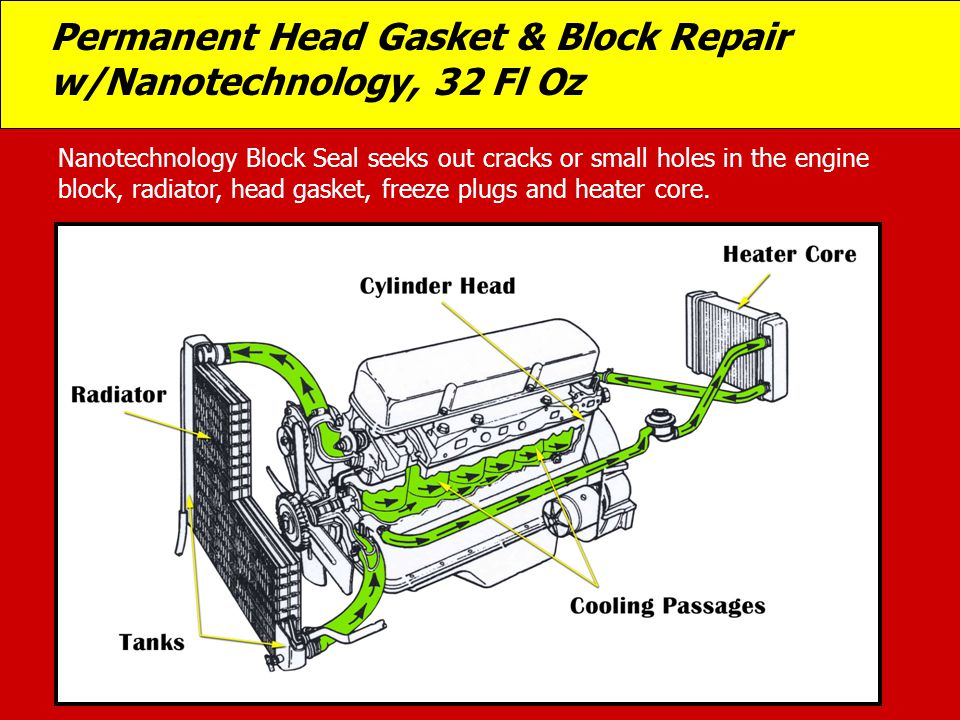

As an example, a recall got issued on 2006 Honda Civics for cracked engine blocks (as well as 07, 08, and some 09 models). Typically, this stems from a fault made during the molding process that leads to thinning in certain areas. While rare, manufacturer defects can result in a cracked engine block. So, if you’ve never had an issue with yours and it’s in this range, it might be time to get it inspected. Most tend to last between 30,000 to 100,000 miles. Signs your water pump is failing include leaking coolant, a whining sound coming from under the hood, or steam coming from your radiator. Consider your water pump, which is in charge of circulating coolant through the block to keep it from getting too hot. Returning to the primary cause of an engine block cracking, overheating. Be sure to consult your owners-manual for the towing specifics of your model. The excess stress might not be the main reason a block can form a crack, but it can contribute. For this reason, if you do decide to add external parts, be sure to stick with OEM products to mitigate the risks.Īlso, be careful you do not overburden your motor when towing a load or trailer. Straight from the factory, engines get built to operate at optimal levels. Things like superchargers and turbochargers might boost performance, but they also add a lot of stress on the block.
#ENGINE BLOCK SEAL CRACK#
You can also cause a crack in your engine block by overworking it. For this reason, be sure to keep an eye on the coolant gauge and add more when it gets low. If you’re running low on engine coolant, then there’s nothing to counteract the heat from rising to dangerous levels. The purpose of passing coolant through the block is to keep it within a safe temperature range. Which causes it to expand, creating microscopic fissures that will grow if the issue persists. The most common cause of a crack in an engine block (according to most mechanics) stems from excessive heat. Let’s review what causes an engine block to crack in the first place. Now that we’ve covered a few of the main symptoms. It does mean you should watch for further signs like overheating or poor performance. While a leak doesn’t always imply that there’s a crack present. But if there’s a crack, they’ll seep through. The reason for this is that the areas fluids run through are sealed. Many signs suggest a crack in your engine block, but one of the most obvious is a puddle of fluid under your vehicle. If you do see a buildup under the cap, you might also notice a puddle of liquid under your vehicle, which suggests a leak. These two substances pass through separate sections of the block, so the only way they can mix is if there’s a crack connecting them. Look for milky, white gunk, which signals oil might be mixing with the coolant. One way to tell if there might be a crack in your engine block is to check under the oil cap. Such as poor performance, leaks, or overheating. Of course, if this happens, you’ll likely have other symptoms.

So, if it’s elsewhere, there is a good chance a crack is present. The only place you should ever notice smoke coming out is the exhaust pipe. Watch for a rough idle or low fuel economy, which suggests there’s a crack in the engine block.īlue or gray smoke appearing from under the hood is another indicator of a cracked engine block. If there’s a crack, then some of that energy escapes, meaning less pressure, which leads to a loss of performance. The ignition system delivers a spark from the battery, making an explosion that moves the pistons, creating power. The pistons rest in the engine block, which is what powers the vehicle. Know that ignoring an engine that’s running hot will only make matters worse. Watch for a temperature gauge in the red, or unexplained low-coolant levels.

When they can’t circulate throughout the block, they can’t do their job. These two liquids are essential for keeping the engine at an optimal temperature level. A crack is a perfect place for fluids like coolant and anti-freeze to escape. One of the first symptoms to watch for is engine overheating. Third, the risks of ignoring it, and lastly, how much a cracked engine block repair costs, and what the options are. Second, the causes of a crack in an engine block. First, the signs that suggest this might be the issue. Thankfully, in this article, we’ll examine in detail the main things you should know.

Be sure to resolve the issue quickly, or you’ll risk blowing a head gasket. Usually, the cause stems from excessive heat caused by low coolant, extreme weather, or overburdening. Signs of a cracked engine block include overheating, blue, or gray smoke coming from under the hood, or poor performance.


 0 kommentar(er)
0 kommentar(er)
